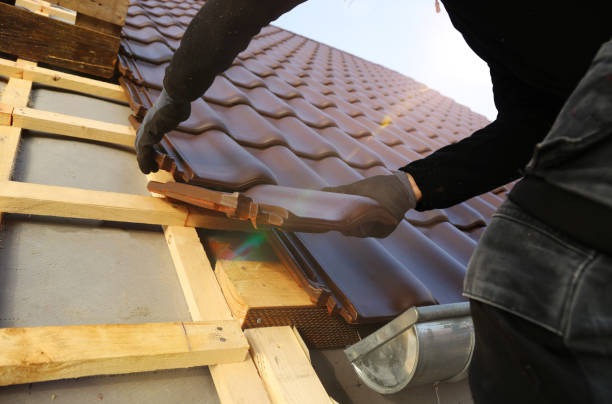Managing a commercial roof installation while keeping your business running smoothly can be challenging. A large roof project is rarely enjoyable for any business owner. However, with good planning, you can reduce disruptions and keep your business operating.
Commercial roof installations can interrupt business activities in various ways, depending on the type of business you have. If you run a retail store, an office building, or an industrial facility, you might face different obstacles. Noise, dust, and limited access can make it difficult for businesses to continue their usual operations.
1. Why Plan Before the Project Begins?
Imagine trying to navigate through a city without a map. That’s what starting a roofing project without a proper plan feels like. Planning is not just an optional step; it’s a crucial part of the process. Before the first ladder even unfolds, take stock of your current operations. Identify areas prone to disruption and figure out how to mitigate them.
Steps to Prepare
Here’s a checklist to help smooth things out:
-
Conduct an assessment of the potential impacts on your daily operations.
-
Establish clear communication channels with your roofing contractor.
-
Inform employees about possible changes and safety protocols.
-
Strategize any shifts or remote work arrangements if needed.
2. Conducting Noise and Dust Management
It’s undeniable—roof installations are noisy and dusty. Whether hammering, sawing, or sanding, these noises can give you headaches, both literally and figuratively. Dust can also be a major issue, infiltrating even the most secure environments. So, what’s the best way to tackle these nuisances?
Effective Strategies for Noise
-
Use soundproofing materials in key areas.
-
Schedule installation activities during non-peak hours.
-
Provide noise-canceling headphones to employees.
Making Dust a Thing of the Past
-
Use plastic coverings for equipment and workspaces.
-
Implement air purifiers to keep the air clean.
-
Personal protective equipment can also be handy for employees.
3. Creating an Access Plan
Installing or repairing a roof can restrict access points to your facility. It’s important to know beforehand which entry points will be affected.
How to Ensure Accessibility
-
Identify alternative routes for employees and customers.
-
Clearly mark entry and exit points with signs.
-
Keep emergency exits accessible at all times.
-
Coordinate with the roofing contractor to keep at least one entrance open.
4. Communication Is Key
Keeping everyone in the loop is essential. Poor communication can lead to misunderstandings and increased disruption. Be sure to have a comprehensive communication plan tailored to your business’s needs.
Stay Transparent
-
Regular updates through emails or company-wide memos can keep everyone informed.
-
Brief meetings or updates can address any immediate concerns.
-
Feedback loops allow employees to voice concerns or suggestions.
5. Opt for Experienced Contractors
The skills and experience of your roofing contractor can make or break the experience. By opting for seasoned professionals, you ensure that tasks are carried out efficiently with minimal disturbance.
Finding the Right Fit
-
Look for reviews and references.
-
Make sure the contractor understands your business’s operational needs.
-
Discuss project timelines and how they’ll handle any unforeseen circumstances.
Choosing local experts or those familiar with your area’s climate and building types can also help. It’s like having a partner who knows what to expect.
6. Strategically Time Your Installation
Timing is everything. Whether it’s a public holiday, after-hours, or a seasonal lull, the when of your roofing project can significantly affect its impact on your business operations.
Things to Consider
-
Look at your company’s calendar and schedule the project at a time that minimizes impact.
-
Coordinate the timing with your contractor, considering weather patterns and their current workload.
-
Be flexible and ready to make adjustments if unexpected delays occur.
Sometimes, timing means selecting materials that can be installed quickly and efficiently. Metal roofing, known for its durability and ease of installation, might be a suitable option for some businesses.
7. Implementing Safety Measures
Your roofing contractors will provide safety measures, but you still have to account for the safety of your team and any visitors to your location.
What You Can Do
-
Communicate safety guidelines to employees and visitors.
-
Set up barriers and signs to keep individuals out of dangerous areas.
-
Offer first aid training or have a health officer on-site.
-
Coordinate regular safety checks with your contractor.
8. Cost Management is Crucial
Budget overruns are every business owner’s nightmare. At the same time, it’s tempting to choose the cheapest option, which might not always be the best option.
Effective Cost Strategies
-
Invest in quality materials that won’t need frequent repairs.
-
Keep a contingency budget for unforeseen expenses.
-
Discuss detailed cost estimates and payment schedules with your contractor.
Sometimes, cost-efficient options could be found in local solutions. Businesses can look into commercial roofing in Rockmart for competitive options, with the added advantage of having local expertise and an understanding of city regulations.
9. Being Prepared for the Unexpected
No matter how much you plan, there might be surprises—you can count on that. Anything from unexpected weather changes to supply issues can cause hiccups in your strategy.
How to Cope
-
Always have a Plan B ready.
-
Build flexibility into your project timeline.
-
Foster a spirit of adaptability within your team.
Even the best-laid plans can sometimes hit a snag. What’s important is how you respond to these challenges, which determines their impact on your business.
In your quest to minimize disruptions, you might need local expertise. Trusted professionals such as local roofers in Rockmart can offer the localized understanding you need, from compliance to the peculiarities of local weather.
Wrapping It All Up
A commercial roof installation doesn’t have to spell doom for your business operations. With careful planning, communication, and working with the right professionals, you can minimize disruptions and keep things running smoothly. Whether dealing with dust clouds or hammering sounds, your focus should remain on delivering the best service to your clients and keeping your team productive. Here’s to a successful, hassle-free roof installation.








